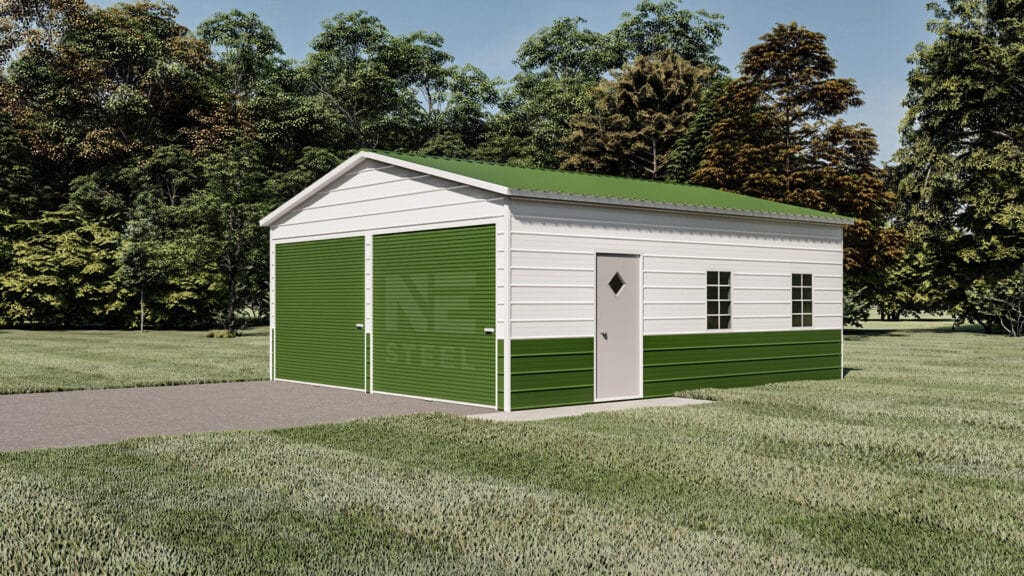An Earth Day Celebration of Steel

In celebration of Earth Day, let’s look at one of the most sustainable and versatile building materials available: steel.
Steel is one of the most commonly used materials in the world thanks to its strength, durability, and relatively low cost. However, steel also has another important quality: it can be recycled repeatedly without losing its integrity. In fact, steel is the most recycled material in the world, with more than 80% of all steel being reused at some point. According to the Steel Recycling Institute, an estimated 68% of all steel produced in the United States is recycled yearly. And the recycling rate is even higher in other countries, such as Germany (95%) and Belgium (96%).
There are several reasons for steel’s high recycling rate.
First, steel is easy to recycle. Recyclers can melt down and reform the steel into new products without compromising strength or durability. This recycle-reuse cycle conserves resources, reduces pollution, and reduces waste. As a result, steel recycling is an essential part of creating a sustainable future.
Second, recycling steel requires less energy than making steel from scratch. As a result, recycling steel helps to save energy and reduces greenhouse gas emissions.
Finally, recycling steel helps to conserve valuable resources. Every ton of recycled steel saves 642 Kwh of energy, 1.8 barrels of oil, 10.9 million BTU’s of energy, and 4 cubic yards of landfill space.
Steel buildings are also incredibly energy efficient, thanks to their ability to be tightly sealed and insulated. Steel also has excellent thermal properties and conducts heat poorly. It can help keep a building warm in winter and cool in summer. This can lead to significant savings on energy costs, as less energy is required to maintain comfortable temperatures.
In addition, steel is also an inert material that does not release harmful chemicals into the environment. As a result, it is an increasingly popular choice for eco-friendly construction projects.
The building and construction industry has a huge impact on the environment.
Every year, millions of tons of waste are generated by construction sites, and this debris often ends up in landfills. In addition, the production of traditional building materials such as concrete and lumber can strain the environment, as these materials require high levels of energy and water. Prefabricated steel panels and frames offer a much more sustainable solution. These panels can be easily recycled or reused, and they are highly energy-efficient to produce. As a result, these steel panels offer a reduced environmental impact compared to traditional building materials.
Prefabricated steel panels are also easier and faster to install than traditional materials, resulting in less waste at the construction site. And because they’re prefabricated in factories, steel buildings have a much smaller environmental footprint than conventional stick-built structures.
In addition, steel panels and frames can be easily disassembled and reused, reducing waste. Finally, these steel panels and frames are often easier to transport than other building materials, which helps to reduce emissions from trucks and other construction equipment.
As you can see, there are many advantages to steel buildings that positively affect the environment. Recycled steel materials don’t require much energy and last for many years. Steel buildings are also energy efficient and generally create less waste than other building materials. As we celebrate Earth Day and our planet’s many breathtaking landscapes, remember that steel buildings can help us protect those places for future generations to enjoy.
Northedge Steel is a premier manufacturer of high-quality, fully customized steel garages, barns, carports, sheds, and utility buildings. Our expert craft, knowledgeable customer service, and extremely flexible financing and rent-to-own payment options are the best in the industry. Ready to start personalizing your metal building? Try our interactive 3D Builder, or Contact us today to get started! 📃